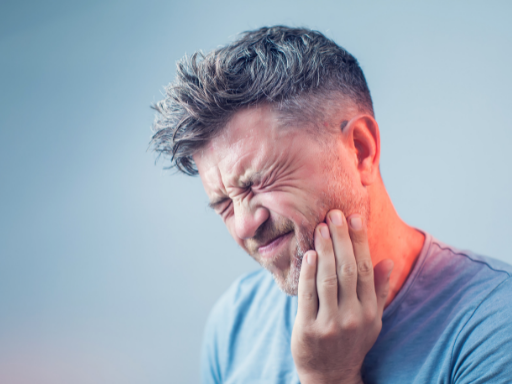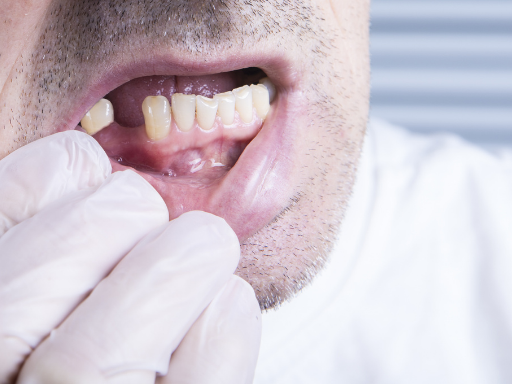Toothache or bleeding, chipped or broken tooth, lost filling or crown: these are just some of the most common types of dental emergencies in Ottawa. While prevention with good oral hygiene and regular office visits to Rockcliffe Dental & Denture Centre is key to preserving your oral health, knowing what to do in a dental emergency is crucial to minimize any long-term damage.
7 Common Types of Dental Emergencies: What to Do?
When you accidentally cut your finger while preparing dinner, you know that you need to disinfect the injury, apply a band-aid or bandage to stop the bleeding, and go to an emergency room in more severe cases. However, many people have little idea of what to do in a dental emergency and what immediate response is required for different types of emergency dental situations.
Without further ado, let’s take a look at 7 most common types of dental emergencies and first-aid actions:
1. Toothache
Pain in your teeth or gums is never a good sign: it can indicate several tooth conditions, including severe tooth decay or infections. And while some toothaches can be managed without an emergency dental treatment, certain symptoms – like swelling – require urgent attention.
 What to Do:
What to Do:
- Book a dental appointment. Call an emergency dental clinic in Ottawa, such as Rockcliffe Dental & Denture Centre, to book an appointment as soon as possible.
- Take an anti-inflammatory. While you are waiting for your appointment, you can take an anti-inflammatory over-the-counter medication. The drug will work to decrease swelling and blunt the severe tooth pain until you visit the dentist.
- Use a saltwater rinse. Swishing your mouth with salt water will keep your mouth clean of food debris. In addition, it can help to relieve gum inflammation and any wounds you may have developed with the sore tooth.
- Apply a cold compress. Hold a cold compress on the outside of your cheek. You can use a package of frozen fruits or an ice pack wrapped in a towel or washcloth and hold the compress near your face for up to 20 minutes.
2. Lost Filling or Crown
Fillings and crowns are used to restore previously damaged or decayed teeth back to their natural appearance and optimal function. When these break, it can be considered one of the types of dental emergencies, as it is crucial to receive the treatment right away to prevent any further damage or infection.
What to Do:
- Keep the lost restoration. You can store the lost crown in a plastic bag, and the dentist may be able to re-cement it to your tooth.
- Use a saltwater rinse. Keep the area clean by swishing a saltwater rinse around your mouth. This will also help to kill any bacteria that could potentially damage the exposed tooth.
- Book an emergency appointment. Give us a call to seek emergency dental care as soon as possible.
- Brush gently. When brushing your teeth, be extra gentle around the area where the filling or crown came out.
- Use temporary filling material. You can purchase special temporary filling material or dental wax to protect the exposed tooth. Keep in mind that this is only a temporary solution until you see your dentist.
- Avoid chewing on the exposed tooth. When eating, be careful not to chew or apply any pressure on the exposed tooth until the emergency treatment.
3. Broken, Cracked, or Chipped Tooth
Biting down on something too hard can cause even a healthy tooth to crack, chip, or break. In addition, sports accidents, grinding or clenching teeth, and using teeth for purposes other than eating can all lead to significant tooth damage. A broken tooth doesn’t only ruin your smile aesthetics – it can also hurt, requiring a visit to an emergency dental department.
What to Do:
- Rinse your mouth. Immediately rinse your mouth out with warm water to help clear away any blood or dirt.
- Stop the bleeding. Apply pressure to the affected area with a gauze or clean towel to stop bleeding, if there is one.
- Preserve tooth fragments. Try to locate any fragments that may have separated from the tooth, give them a quick rinse, and submerge in a glass or container of milk. Make sure to bring these fragments along to the emergency dentist.
- Apply a cold compress. A cold compress applied to the injured area will help to reduce swelling and alleviate any pain.
- Take a pain reliever. If you are experiencing severe pain, you can take an over-the-counter pain reliever or anti-inflammatory drugs, such as aspirin, ibuprofen, or naproxen.
- Book an emergency dental appointment. Give us a call and book an emergency appointment as soon as possible to prevent any infections and more serious dental issues down the road.
4. Loose or Knocked-Out Tooth
A facial impact or trauma can cause teeth to become loose or fall out completely, – a reason for an immediate dental visit. If you have a loose tooth, it is important to keep it in its socket until you visit the dentist, and, depending on the dental injury, you may be able to put the knocked-out tooth back in its place. If you can’t reinsert the tooth, make sure to bring the tooth with you to the dentist appointment.
 What to Do:
What to Do:
- Rinse the tooth. Hold the knocked-out tooth by its crown (do not touch the roots!) and gently rinse it under cold water for 10 seconds. Be careful not to scrub the tooth, as this could remove the tissue on the tooth root required to reattach the tooth.
- Try to reinsert the knocked-out tooth. If possible, try to place the permanent tooth back into its socket, holding it by its crown. For children, primary teeth should NOT be reimplanted, as this could lead to infection.
- Preserve the knocked-out tooth. If you can’t reinsert the tooth, wrap it in a wet paper towel or, even better, place it in a glass or container with milk and take it to the dentist. Alternatively, you can place the tooth in your mouth, behind the cheek, to keep it safe during the trip to the dental office.
- Visit the dental office immediately. Go to an emergency dental office as quickly as possible. If a knocked-out tooth is reimplanted within 30 minutes to 1 hour, it is likely to reattach within the socket. The dentist would usually splint the tooth to the neighbouring teeth to let the surrounding tissues heal and recover. If this is not possible, you can consider getting a dental implant restoration.
5. Broken Orthodontic Appliances
Braces are made to withstand daily wear-and-tear associated with eating, chewing, and even talking. However, the wires can break from time to time and start poking your gums and cheeks. Not only does this cause discomfort, but it can impede the progress in aligning your teeth. Therefore, this constitutes an orthodontic emergency.
What to Do:
- Push the wire into a more comfortable position. Sometimes, it is possible to reposition the wire to reduce the pain and discomfort.
- Cover the exposed ends. You can also cover the exposed ends of the wire with orthodontic wax, a piece of gauze, or a small cotton ball.
- Do not cut the wire. Avoid cutting the wire, as it poses the risk of swallowing.
- Call your orthodontist. Rather than calling a general emergency dentist in Ottawa, call your orthodontic office directly and book an appointment as soon as possible
6. Bleeding and Pain after a Tooth Extraction
It is normal to experience some pain and minor bleeding following a tooth extraction. However, if these persist or worsen, it may constitute a dental emergency situation.
What to Do:
- Call your dentist. Consult with your dentist to determine whether the pain and bleeding are a cause for concern and constitute a type of dental emergency.
- Minimize bleeding. Place a clean gauze pad over the extraction site and apply gentle pressure by biting down on it. In addition, try to avoid rinsing, eating, and drinking for some time, as well as spitting, sucking, and smoking.
- Take prescribed or over-the-counter painkillers. When you undergo a tooth extraction, your dentist will prescribe you pain medication and antibiotics to prevent bacterial infection. Make sure to take these as recommended. You can also use over-the-counter pain relievers, such as ibuprofen and acetaminophen.
7. Periodontal Abscess
Infections in your mouth, especially near tooth roots, can quickly spread to surrounding gums and teeth, and even the rest of your body. If you notice a painful, swollen spot on your gums, it may be the first sign of a tooth abscess, a serious emergency dental situation.
What to Do:
- Call an emergency dentist. If left untreated, this type of dental emergency can turn into a serious life-threatening condition. Call an emergency dental clinic like Rockcliffe Dental & Denture Centre as soon as possible.
- Use saltwater rinse. In the meantime, rinse your mouth with salty water several times per day in order to draw the pus to the surface.
Are You Having a Common Dental Emergency? Contact Rockcliffe Dental & Denture Centre Now
While dental emergencies can’t always be avoided, prompt response and appropriate actions can help to address the problem and minimize potential oral health issues. If you experience any type of dental emergency situation, make sure to contact your emergency dental clinic in Ottawa.
Give us a call now to book an urgent care appointment.
Read More: